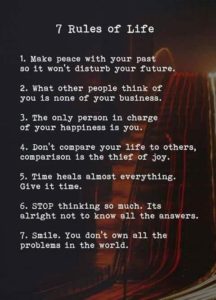 Self-care is any activity that we do deliberately in order to take care of our mental, emotional, and physical health. Although it’s a simple concept in theory, it’s something we very often overlook. Good self-care is key to improved mood and reduced anxiety. It’s also key to a good relationship with oneself and others.
Self-care is any activity that we do deliberately in order to take care of our mental, emotional, and physical health. Although it’s a simple concept in theory, it’s something we very often overlook. Good self-care is key to improved mood and reduced anxiety. It’s also key to a good relationship with oneself and others.
Self-care isn’t a selfish act either. It is not only about considering our needs; it is rather about knowing what we need to do in order to take care of ourselves, being subsequently, able to take care of others as well. That is, if I don’t take enough care of myself, I won’t be in the place to give to my loved ones either.
Offer yourself the same treatment as you are offering to others: be kind, understanding, supportive, loving, carrying, empathetic – you deserve it.




